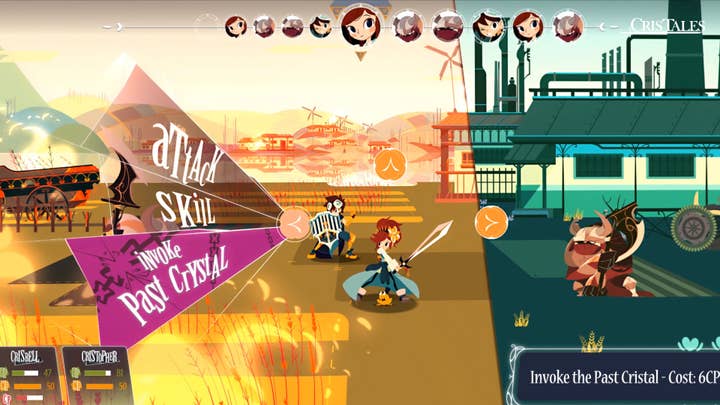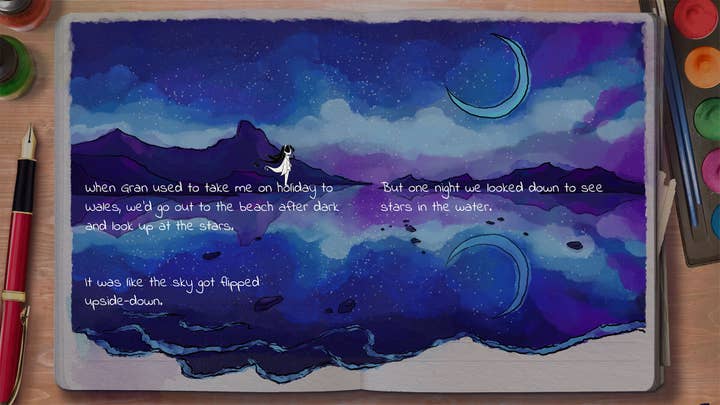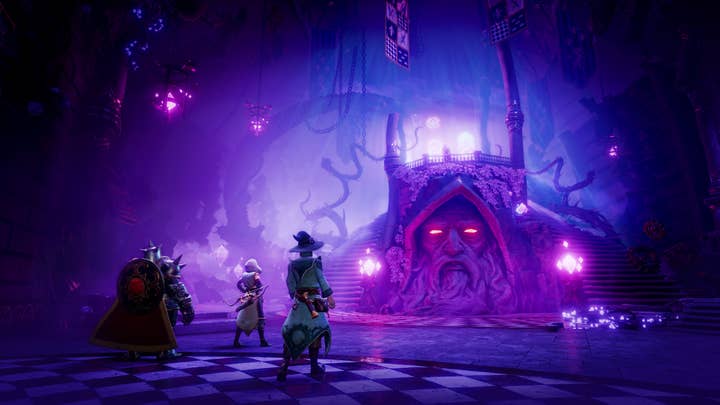The whirlwind first year of Modus Games
CEO Christina Seelye on how Maximum Games' new label thrived in a year of new technology, changing business models, and COVID-19
The first year for any new publishing label is bound to be hectic -- and that's without a global pandemic, events and marketing disruptions, and a new console generation on the horizon.
But Maximum Games' independent publishing label Modus Games is thriving in spite of the chaos, and CEO Christina Seelye is pleased overall with how it's weathered a storm of a first year.
I last spoke to Seelye when Modus officially launched last year. The announcement followed a soft launch during which the publisher quietly (on its own end, anyway) released a handful of indie titles. Seelye is happy the label elected to keep its head down for a period before unveiling itself -- by the time Modus was ready to step forward alongside the announcement it would publish Trine 4: The Nightmare Prince, it had a clear and comfortable roadmap ready.
"Over the past year, there have been a lot of people coming and launching themselves as an indie publisher"
In the year since, Modus has also released its first Stadia title, Lost Words, increased staff by 15%, and acquired The Balance Inc in Brazil -- giving the publisher its first internal development capability. Altogether, Seelye says it's been a successful year for Maximum and Modus as they've collectively diversified what they can offer -- a key move toward standing out, she notes, as the indie publishing space becomes increasingly crowded.
"Over the past year, there have been a lot of people coming and launching themselves as an indie publisher," Seelye says. "And I think that it's really important for studios to define what it is specifically that they're looking for from a publisher before they lump all of indie publishers into one bucket.
"What we provide as an indie publisher is very different than what some of the other guys that are also publishing [provide]. There's a whole category of publishers out there who are focusing on release management and listing the game and very late-stage, getting it out the door and launching it -- which is definitely an option for a lot of indie studios who already have a lot of internal capabilities. For us...we focus a lot on playtesting, we focus a lot on improvement of the game throughout the whole development process to make sure that we have both a commercial and a critical success."
One area Seelye says Modus excels in is being flexible and knowledgeable enough to release games across multiple different storefronts, something that indies can often struggle with doing on their own or with limited publishing resources. Aside from development and certification challenges, the growing number of places to publish games is presenting new challenges to how developers monetize, where they release, when, and how.
"You have to be aware of the different options that are out there and be very thoughtful about how you're going to approach each one of them," she says. "Because you don't want to get yourself in a situation where you're giving a subscription to one new player that is going to screw up all of your different opportunities on all of the different platform holders. You have to be intentional about the choice that you're making, and make sure that you're kind of respecting each platform's need to do business and differentiate, so that you have a strategy that's going to be really good for each one of them."
Another major industry shift that's occurred since Seelye and I last spoke has been the reveal of next-generation consoles -- perhaps most notably Epic's showcase of Unreal Engine 5 and promises of the time it will save indie developers. Seelye believes that the coming development capabilities will benefit independent studios far more than AAA, allowing smaller teams or those with cash constraints lean into the engine's capabilities in a way they couldn't before.
That said, she speculates that the gap between AAA and indie production values will remain -- though she adds that said gap doesn't matter all that much simply in terms of garnering interest in a good game idea.

"I think that the difference between the budget for an indie title and a budget for a AAA title is so completely gigantic that you're not going to be able to have a first-person shooter that an independent studio makes be comparable to what a Call of Duty would be," Seelye says. "That said, I think what is really interesting is that gamers themselves are super open to what independent studios are bringing to the table. And that a gamer inherently understands that this isn't a AAA title, but they're really enjoying it because it's really fun or it has some creative game mechanic, or it has some really compelling story that they're into.
"I think it's the gamer that's making the independent studio be really successful, and then the different capabilities of new consoles and new game engines make that better for the gamer. I have a high level of confidence in the gamer. Gamers make good decisions, they look out there for a good game, and they play it regardless of whether or not it has super high production value."
"When we moved to this work-from-home environment, we started to see people not taking personal breaks"
When Seelye and I last spoke, she told me about how Maximum's global distribution capabilities allowed Modus to help independent studios who might not otherwise be able to swing a physical release get their games in boxes around the world. Though that mission would seemingly be thwarted temporarily by COVID-19, Seelye says that online retailers helped ease the pain brought by the closure of brick and mortar stores.
"There is still very much a physical demand for games," she says. "And I'm not just talking about collector's editions and direct-to-consumer types of sales. I'm talking about -- we're selling a lot on Amazon, we're selling a lot at Walmart, we're selling a lot through the various equivalents across Europe and around the world. Over the past couple months, we've had really good success with physical.
"Now, I will say it was challenging, and in March and April, maybe even more than half of the stores that you would normally buy video games for were completely closed, so we did experience a pretty significant drop during that time. But it got made up by Amazon and Walmart and stores that were open, and then we're continuing to see growth as those stores open up."
Seelye adds that while she's confident demand for physical games is going nowhere, it's possible that COVID-19 may have triggered a shift in how consumers purchase physical games that will outlast the pandemic's changes.

"I don't know what the right quote is for this, but I think it takes like, 28 days or something to establish a habit? So because the shelter-in-place has lasted so much longer than the time period it takes to change a habit, I think that there might be more of a shift to the [online] retailers more than in-store because everybody has stayed home for so long. That said, I don't know that it's true. We will see how that plays out over the course of the summer."
With physical sales rebounding, digital sales strong, and the transition to work-from-home fairly smooth, Seelye says that the material business impact of COVID-19 on Modus Games haven't been particularly notable. Rather, she is concerned about the human cost, saying that the company's employees were "overly productive" in March and April. But now, she's seeing a surge in employees admitting they need a break or a vacation.
"We've never been the kind of company that is doing the kind of sprints and pushes where everybody has to work for 20 hours a day," she says. "That's not our culture. That said, when we moved to this work-from-home environment, we started to see people not taking personal breaks. You started to see 24-hour Slack communication, like you couldn't really tell if it was Saturday and Sunday. All of the emails and communication were constant."
In response, Seelye says Modus created Slack channels to help lead employees to take regular breaths and breaks, go outside for walks, and do workouts together. They've organized pub quizzes and other games to help employees socialize with one another. And over Memorial Day weekend, employees were very specifically instructed to shut everything down entirely, even the kinds of tasks that are tempting to sneak in on days off: no one talking in Slack, and no sending emails.
"People's anxiety and level of intensity that they've had to live with over these past couple months is so high that I feel like everybody's at a breaking point," Seelye says. "And it's our jobs as leaders to create some space for people to rest. And it's hard right now because nobody can go anywhere. You can't tell them to go on vacation and go on a trip because nobody can. So a lot of it is: how are we creating restful moments and moments to breathe internally?"










